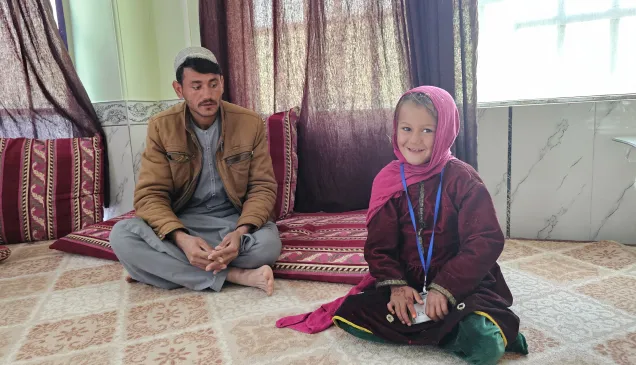Physical rehabilitation in Afghanistan: Touching nearly 178,000 in 30 years
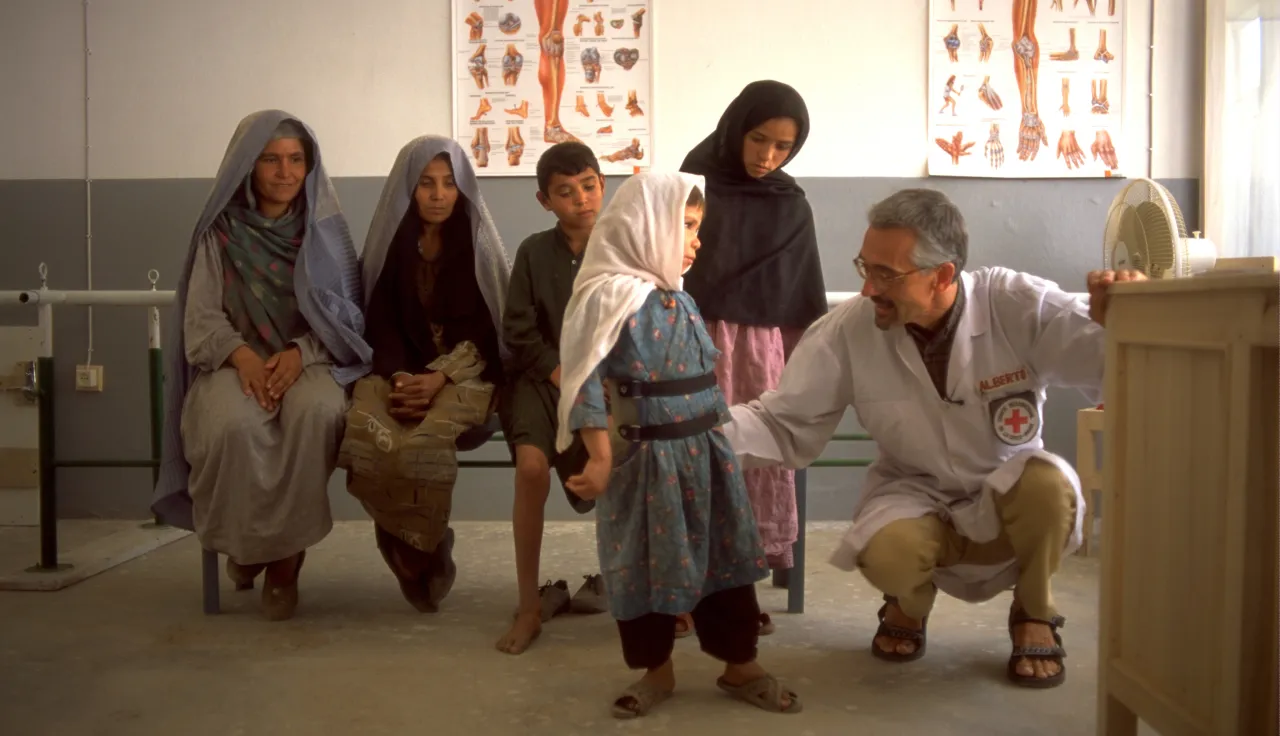
It's been 30 years since the ICRC launched its Physical Rehabilitation Programme in Afghanistan. Today, there are seven specialized limb-fitting centres run by the organization that cater to the needs of almost 178,000 disabled citizens. Despite the reality that they will need physical rehabilitation throughout their lives and that care is going to be hard to come by in this war-torn country, countless Afghans find courage to stand up on their feet again and dream of a better future.
The day five-year-old Soudeh took her first steps after being fitted with an orthosis, her parents had struggled to put their sleepy, but excited, daughter to bed at night. What had started as a hesitant walk for this polio warrior soon turned into a memorable play-day with friends as Soudeh discovered the "ordinariness" of walking and running about without a care. Now working as a physiotherapist at the physical rehabilitation centre run by the International Committee of the Red Cross (ICRC) in Herat, Soudeh says she was was one-and-a-half years old when she contracted polio in the right leg. But life changed when she got the orthosis, and she worked hard to spread that joy by studying to be a physiotherapist herself.
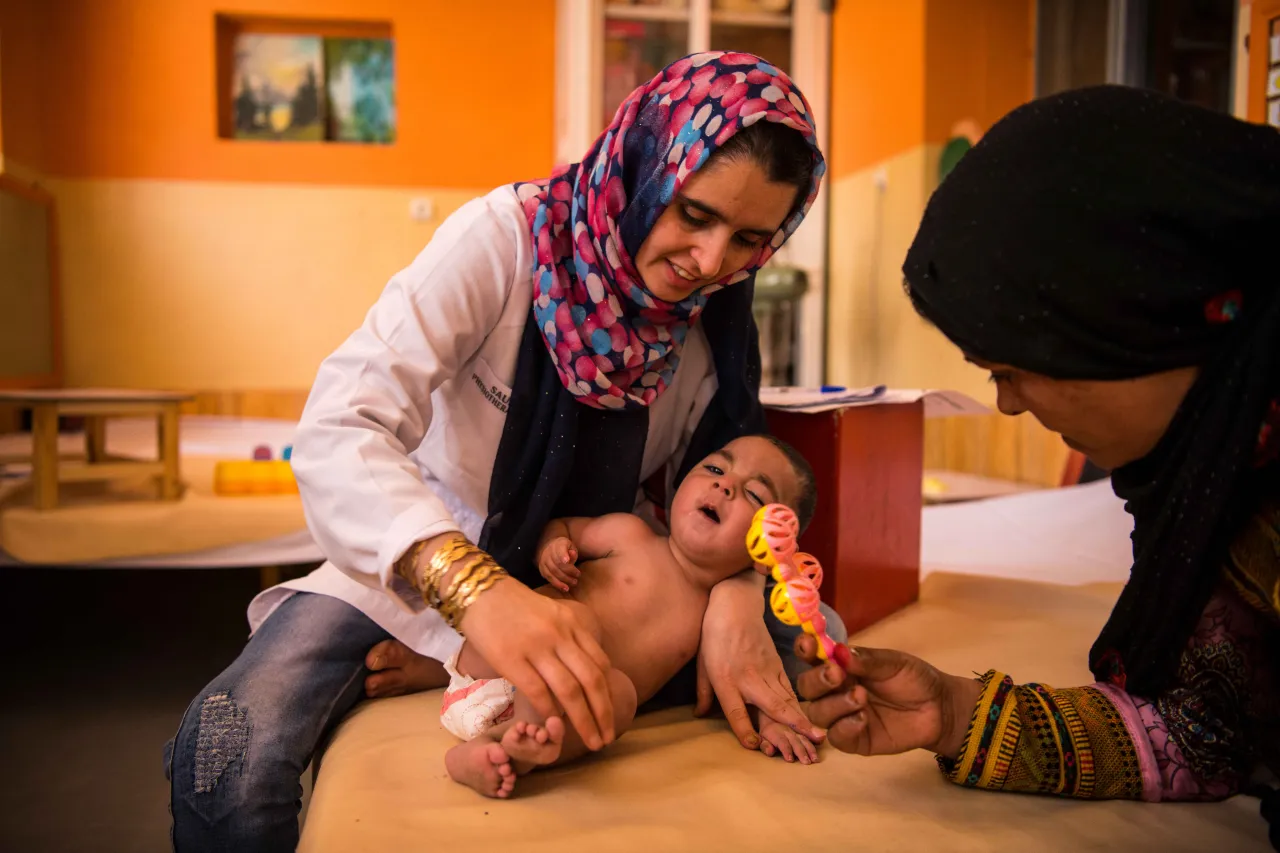
Soudeh is one of the over one million people in Afghanistan who suffer from some form of physical disability. Four decades of war and its aftermath have left the country with one of the highest rates of disability in the world. From landmines and remnants of war to wounds suffered in conflict, from barely-accessible primary health care to congenital diseases and accidents – all these reasons, and more, have marred the chances of normalcy for thousands of Afghans. Against the grey clouds of despair, many find hope in support provided through the physical rehabilitation centres run by the ICRC. The centres support the physical rehabilitation needs of nearly 178,000 people, including those who became disabled due to disease and war.
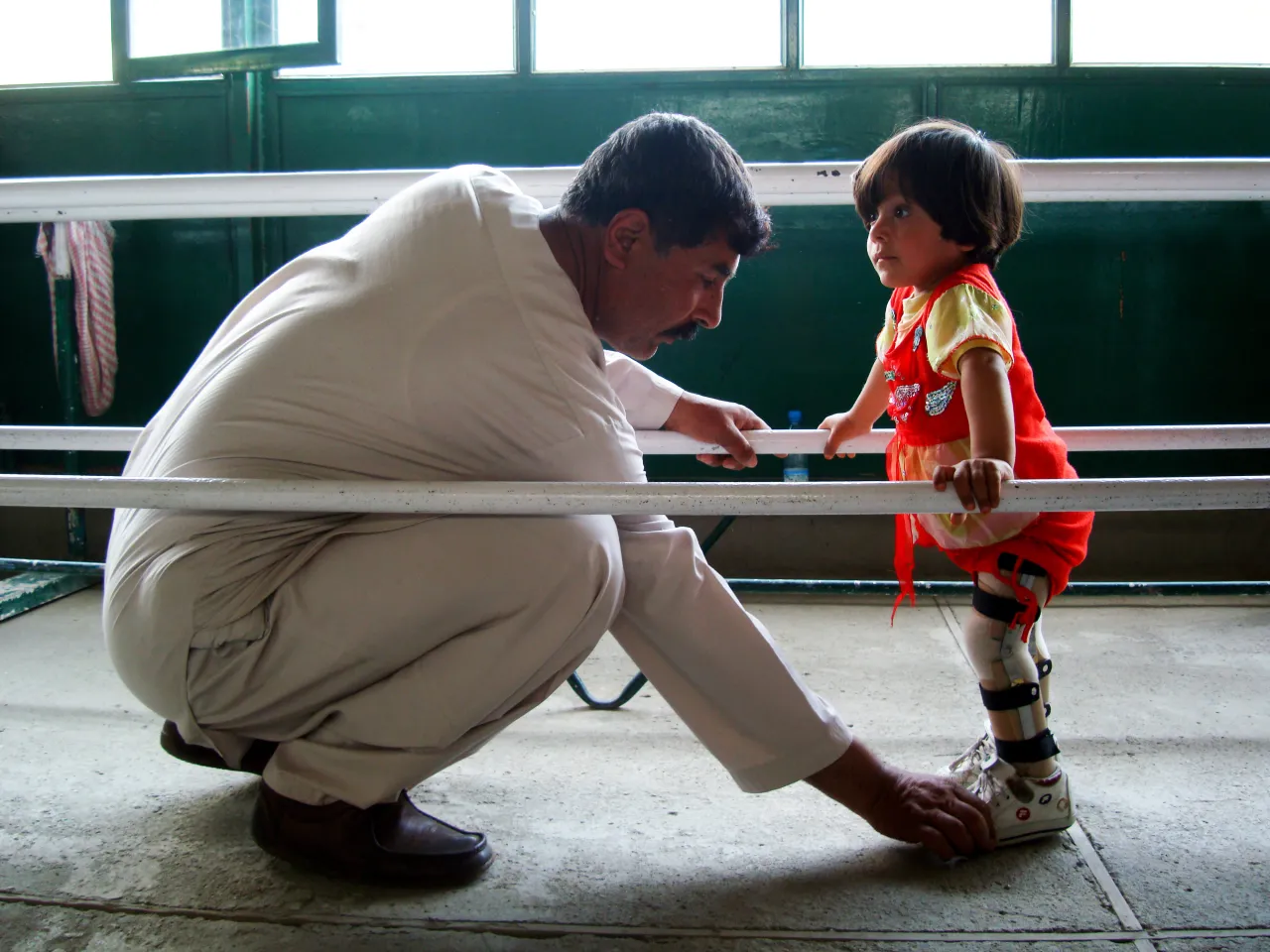
Every year, close to 10,000 new Afghans are registered with the ICRC to receive limb-fitting and physical rehabilitation help. Only 10% of them are those who've suffered war-related injuries; the remaining 90% became disabled due to a congenital condition, disease or accident. Poor access to preventive and primary health care affect one-third of this number – a huge cost paid by a nation that's already suffering due to decades of conflict. Afghanistan is one of only three countries in the world with ongoing wild poliovirus transmission, alongside Nigeria and Pakistan.
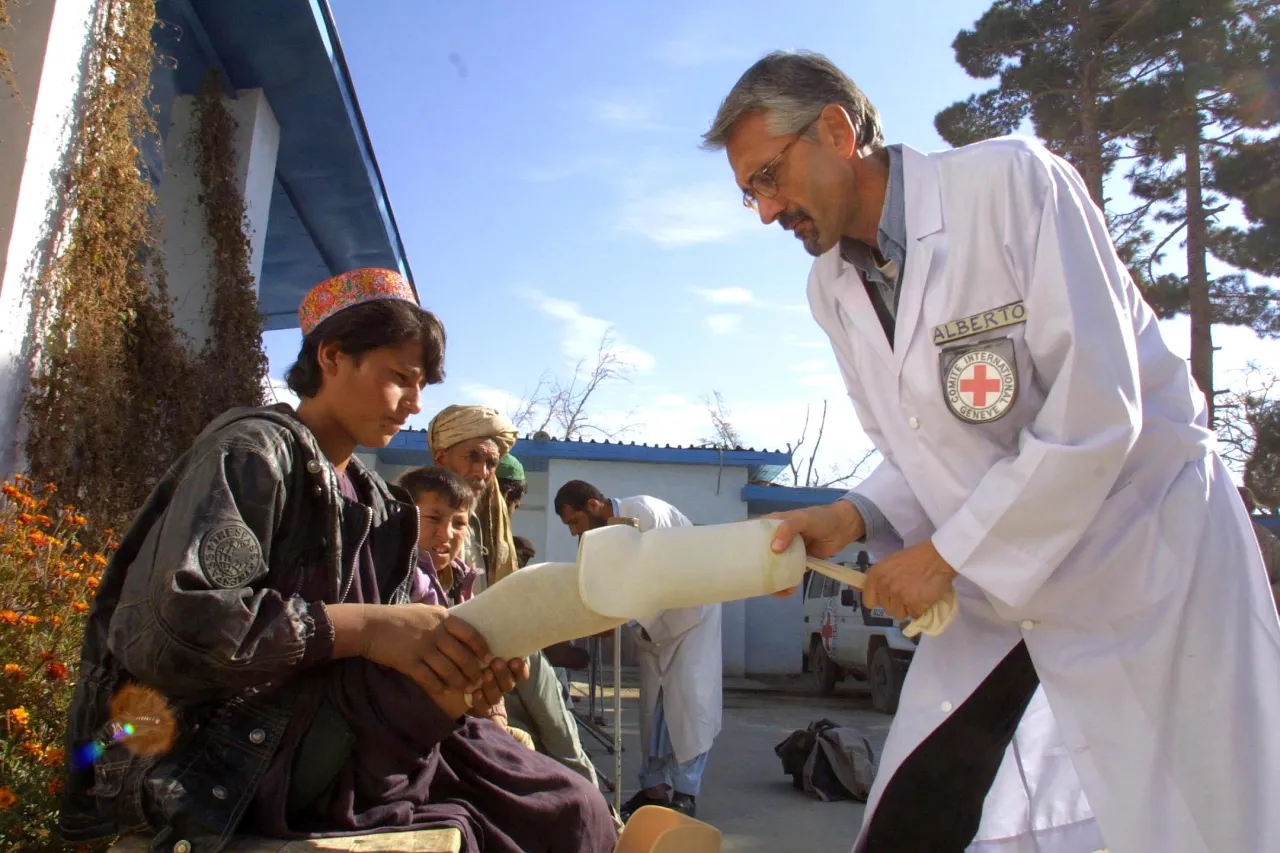
Alberto Cairo, the head of ICRC's rehabilitation programme in Afghanistan, estimates that those in need of a prosthesis or a corrective device are not less than 200,000. One of the world's most mined countries, Afghanistan is also bearing the brunt of anti-personnel landmines. As many as 750,000 people are threatened by the presence of mines and unexploded remnants of war, and over 29,500 of those who've lost a limb due to landmines or other war remnants are undergoing treatment at the ICRC centres.
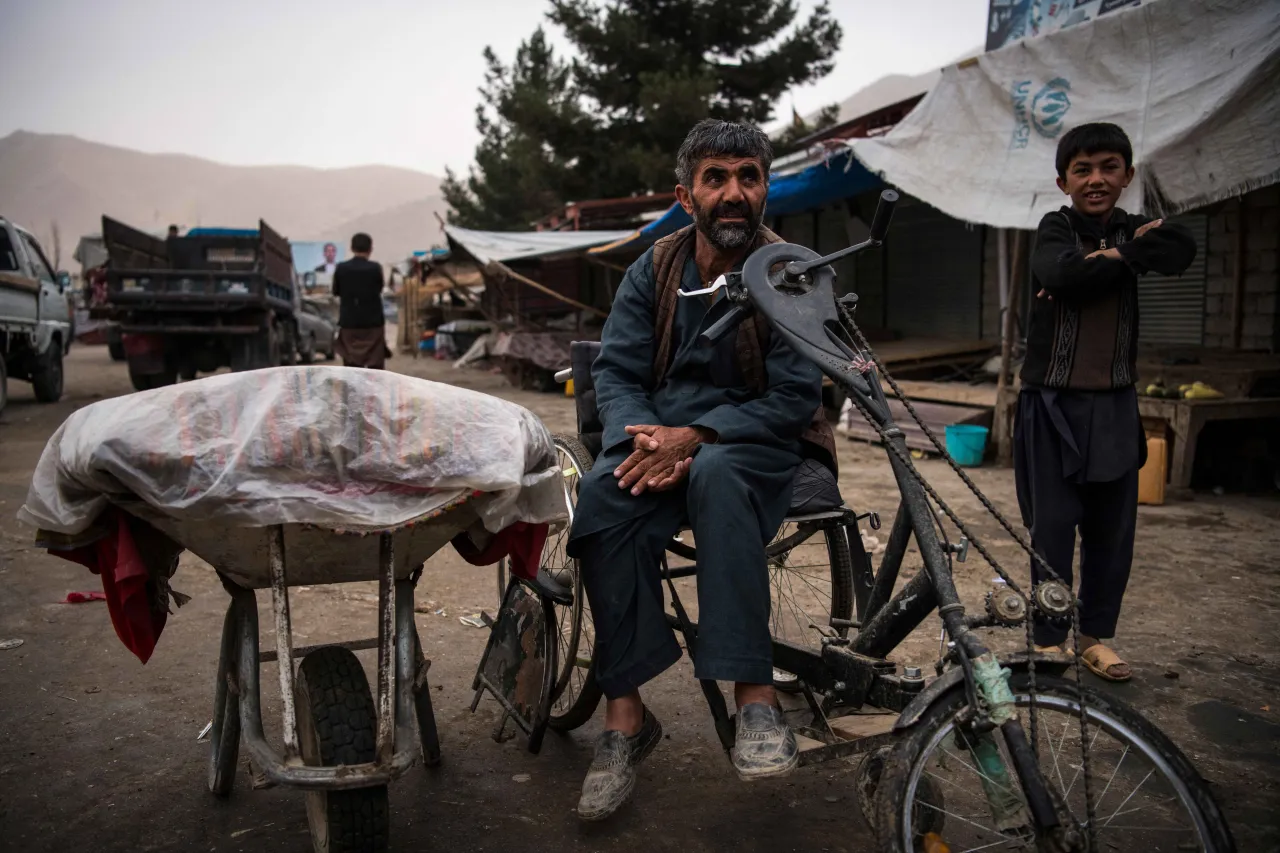
I still dream of being able to walk one day.
It's been six years since Safar Mohammad lost the use of his lower extremities after getting shot in the spine during a protest. While his 12-year-old son pushes his wheelchair ahead, Safar's elder son is in charge of a wheelbarrow carrying the day's fresh bread that the family sells in the market to earn a livelihood. "People are cruel... they use insulting nicknames for me even as I try to lead to a normal life," he shares. After Safar Mohammad lost all his money on medical treatment, he approached the ICRC for a loan to save his drowning business. Despite solid legislation on persons with disabilities, being disabled in Afghanistan is still surrounded by prejudice and discrimination, a fact that this middle-aged baker knows all too well.
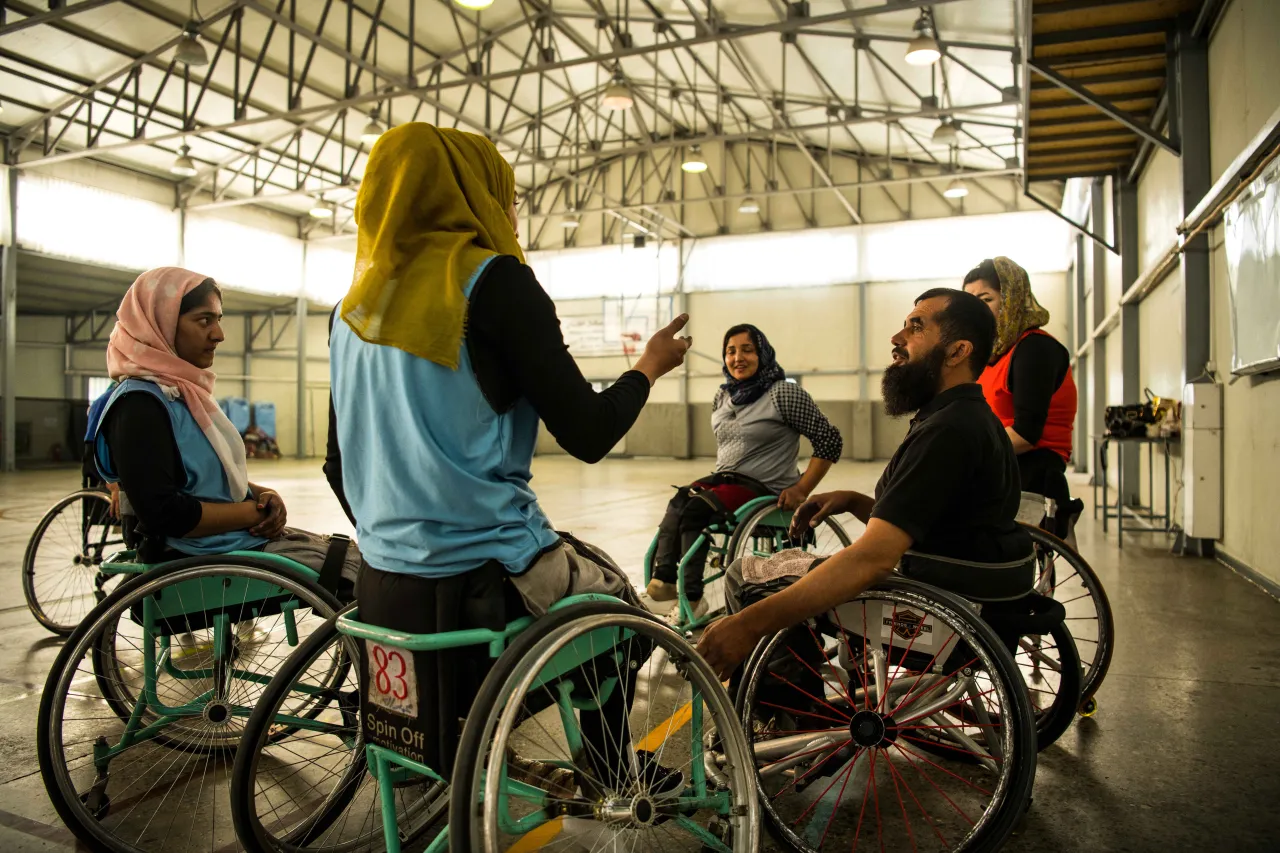
But life has been kinder to wheelchair basketballer Mahmadullah Ahmadi, who got an opportunity to start over not once, but twice. After suffering from a spinal cord injury due to shelling, he benefitted from the ICRC's microcredit programme and set up a shop. But he had bigger dreams. Six years on, Mahmadullah Ahmadi took to wheelchair basketball and his efforts and persistence landed him a spot in the national team.
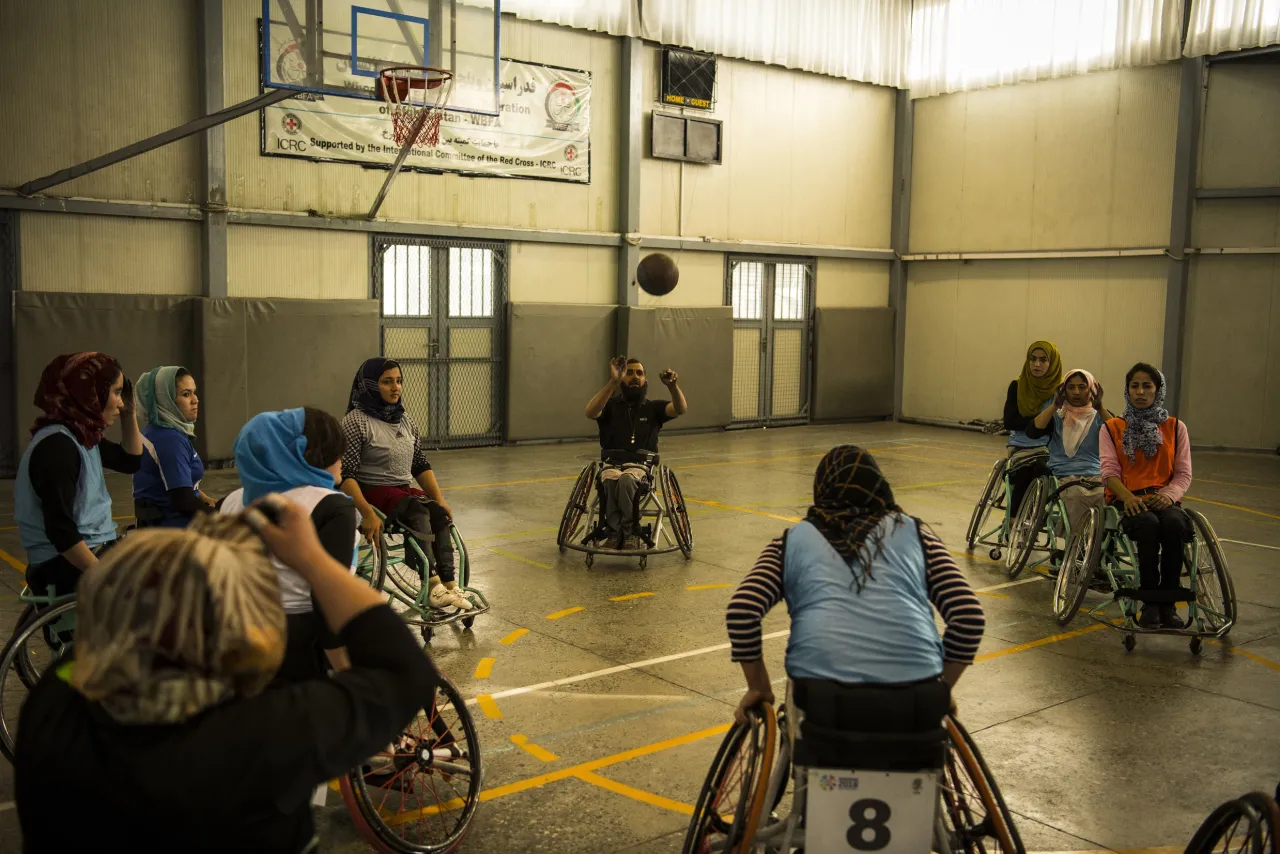
"In 2014, I was part of the national team that competed in an international championship in Italy. Upon our return, we decided to step up our game and get more serious about training."
Today, this mild-mannered sportsman trains the budding wheelchair basketballers in the gymnasium of the ICRC-run orthopaedic centre in Kabul.

